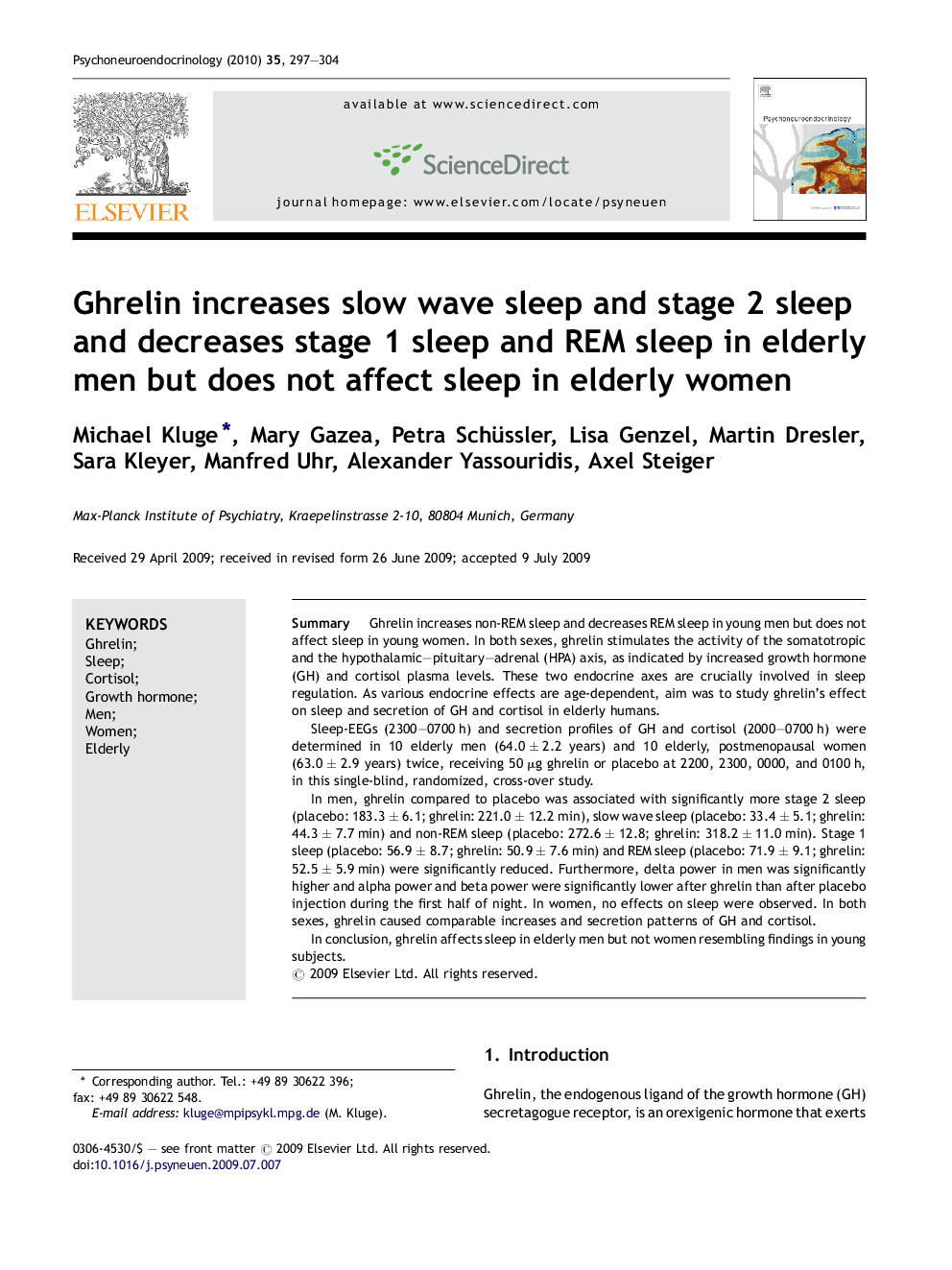| Article ID | Journal | Published Year | Pages | File Type |
|---|---|---|---|---|
| 336705 | Psychoneuroendocrinology | 2010 | 8 Pages |
SummaryGhrelin increases non-REM sleep and decreases REM sleep in young men but does not affect sleep in young women. In both sexes, ghrelin stimulates the activity of the somatotropic and the hypothalamic–pituitary–adrenal (HPA) axis, as indicated by increased growth hormone (GH) and cortisol plasma levels. These two endocrine axes are crucially involved in sleep regulation. As various endocrine effects are age-dependent, aim was to study ghrelin's effect on sleep and secretion of GH and cortisol in elderly humans.Sleep-EEGs (2300–0700 h) and secretion profiles of GH and cortisol (2000–0700 h) were determined in 10 elderly men (64.0 ± 2.2 years) and 10 elderly, postmenopausal women (63.0 ± 2.9 years) twice, receiving 50 μg ghrelin or placebo at 2200, 2300, 0000, and 0100 h, in this single-blind, randomized, cross-over study.In men, ghrelin compared to placebo was associated with significantly more stage 2 sleep (placebo: 183.3 ± 6.1; ghrelin: 221.0 ± 12.2 min), slow wave sleep (placebo: 33.4 ± 5.1; ghrelin: 44.3 ± 7.7 min) and non-REM sleep (placebo: 272.6 ± 12.8; ghrelin: 318.2 ± 11.0 min). Stage 1 sleep (placebo: 56.9 ± 8.7; ghrelin: 50.9 ± 7.6 min) and REM sleep (placebo: 71.9 ± 9.1; ghrelin: 52.5 ± 5.9 min) were significantly reduced. Furthermore, delta power in men was significantly higher and alpha power and beta power were significantly lower after ghrelin than after placebo injection during the first half of night. In women, no effects on sleep were observed. In both sexes, ghrelin caused comparable increases and secretion patterns of GH and cortisol.In conclusion, ghrelin affects sleep in elderly men but not women resembling findings in young subjects.
